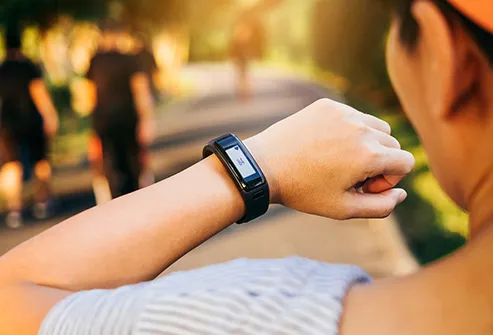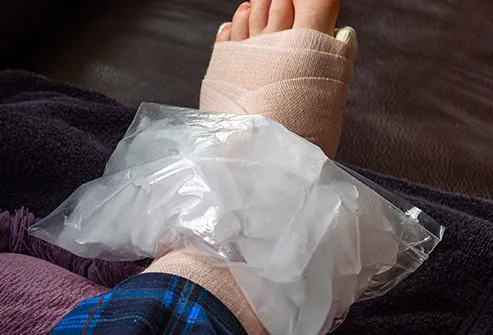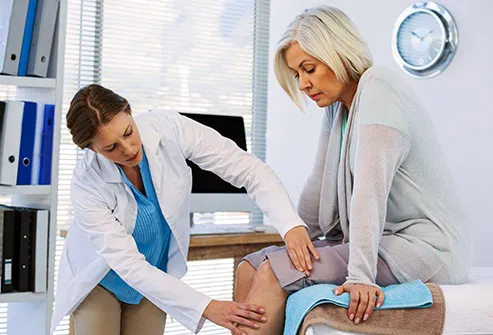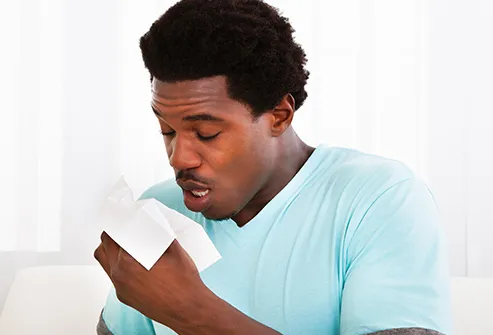How to Listen to Your Body (webmd.com)

Red Flags?
Your body will often let you know if something suddenly goes drastically wrong. If something feels really off — like changes in being able to see, talk, walk, think clearly, or communicate, or having chest pain or shortness of breath — call 911. Don’t wait to see if you feel better. If it’s a stroke or heart attack, you need medical care right away.

Do You Need A Rest Day?
You don’t feel up to your regular workout. Should you pass? Tune in. Do you feel sore and worn out? Then you may need a lighter day. Or are you feeling tempted by your favorite show and your couch? How often you need rest depends on how hard you work out and what you do, and how you feel. If you’re not in pain, some movement is usually a good idea. A certified personal trainer can give you a training schedule that builds in recovery.

Is It Aging?
Some pain from wear and tear on your body is natural as you get older. Or you may notice that you’re not as flexible or strong as you used to be. The cushion at your joints and between the bones of your spine can start to break down. That could hurt and limit your movement. It helps to stay active, but when the pain doesn’t go away, your doctor might suggest a specialized “rehab” exercise routine to manage it.

Your Heart Rate Feels Off
You may feel lightheaded or dizzy with a racing, fluttering, or slowed pulse. If it lasts more than a few minutes or happens often, it might be from an illness or heart rhythm problem. Serious chest pain or trouble walking or speaking could mean a heart attack or stroke: Get to a hospital. An easy workout that suddenly seems hard and raises your pulse longer than usual may mean you’re overdoing it. Talk to a doctor about your symptoms.

Burned Out?
If you’re under stress that doesn’t let up, it can really get to you. You might notice that you’ve got less energy, headaches, an upset stomach, or other symptoms. Little things that you used to be able to shake off now bother you. These may be signs that you need to step up your stress management. What helps: exercise, positive relationships, meditation, smiling and laughing, and taking breaks from whatever causes you stress.

Mood Matters
Everyone has times when they feel down or anxious. But if you have depression or anxiety, those conditions can affect you physically as well as emotionally. You might notice that you cry a lot, isolate yourself, avoid doing things you normally love, have tense muscles, find it hard to concentrate, and sleep or eat more (or less) than normal. These are cues to talk to your doctor or a therapist to get help.

Appetite Changes
If you find that you eat a lot more, or a lot less, than usual, your body may be telling you that something isn’t quite right. It might be that you’re stressed out and are eating for emotional reasons. Or you might be depressed, and that’s dimmed your appetite. Some conditions, and even getting older, can also affect your appetite. It helps to be active and to favor flavorful, healthy food. If that doesn’t help, let your doctor know.

Injured or Just Sore?
A good gym session might make you mildly sore. But muscle pain that lasts several days could mean you overdid it — too much, too soon, or too hard — and have an injury. It’s best to wait until you’re back to normal to exercise again. So to stay healthy and keep to your routine, keep your intensity low and ramp up slowly.

Put on the Brakes
When you’re working out and your body screams “Stop!” listen. You may have broken a bone or torn a muscle or ligament. Try RICE:
- Rest: Lie down and keep your weight off
- Ice: 20 minutes at a time
- Compression: Use a bandage for support
- Elevation: Raise the hurt area (above your nose if you can)
Go to an ER or clinic if the pain is intense, it worsens, or you also have fever and chills. Call your doctor if it still hurts after 2 weeks.

Sleep Problems
Do you often toss and turn at night? Your body may be saying you need more sleep. First, try simple things, like going to bed and getting up at the same time every day, sleeping at least 7 hours a night. Keep your bedroom cool, and don’t watch TV or check your phone after bedtime. Being active during the day also helps. Avoid big meals and caffeine too close to bedtime. If that’s not enough, ask your doctor what the problem might be.

Pain That Doesn’t Quit
Are you noticing twinges and aches that happen over and over again? Don’t try to cover them up with medication or just “work through” them. You want to stop a minor ache from turning into a major problem that won’t go away. A doctor can help you pinpoint the source of the problem and treat it. You might need physical therapy so you start to feel it better.

A New Lump
Whether you’re a woman with a lump in their breast or a young man with a testicular lump, these are good things to get a doctor to check. You really can’t tell what they are, just based on how they feel. They aren’t always cancer, but it’s important to find out about new lumps for sure, and as soon as possible, in case you need treatment.

A Bad Reaction
Maybe you think you’re starting to get allergies to pollen, or that your gut can’t handle lactose or gluten. Or you notice that your skin is itchy and dry all of a sudden. These are things that are easy to jump to conclusions about. But it’s a good idea to see a doctor to find out if you really do have an allergy or if something else is causing your symptoms. That way, you’ll know what you need to avoid and how to treat your triggers.

Trust Yourself
You know yourself inside and out: how you feel on a good day, what feels “off,” when you’re sick, when you’re rested. It can all show up in your body, from a clenched jaw from stress, to a sore calf muscle after hiking all weekend, to something serious. Sometimes it’s hard to tell on your own, so never hesitate to ask your doctor, who’s there to help.

What Helps Your Doc
When you go to your doctor to find out what’s causing the problems you’ve noticed, there are a few things that will help. Bring a list of your symptoms, when they started, what seems to help, what makes them worse, and how you tried to fix the problem. Tell your doctor about all the things you take, including vitamins, herbal products, over-the-counter medicines, and prescriptions. And bring a list of questions that are on your mind.

